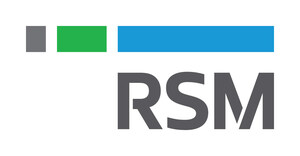The RSM US Middle Market Business Index (MMBI) Capital Expenditures Special Report found that just 38 percent of middle market companies plan to increase the dollar volume of their capital expenditures over the next three years because of accelerated expensing and depreciation. Of that 38 percent, only half are planning to make new capital investments, while the other half are accelerating previously planned investments. This continues the trend of low levels of capital expenditures in the middle market since the inception of the index.
"The middle market's reticence to invest in their business, despite the tax reform stimulus, may be due in part to a lack of understanding on how certain provisions of the Tax Cuts and Jobs Act, such as bonus depreciation, could benefit their companies and provide opportunities to accelerate capital expenditures," said RSM US Chief Economist Joe Brusuelas. "The survey results also indicate business leaders plan to spend more on attracting and retaining talent, yet could channel some resources to technology to improve productivity."
Spending Priorities Might Not Align with Opportunities
Despite the restrained approach to capital outlays, nine out of 10 middle market executives believe their level of capital investments expenditures is sufficient to meet current demand. This incongruity raises concern that this view may reflect growing complacency, particularly as the economy moves through a period of profound disruption.
"With gross domestic product increasing at an annual rate of 4.1 percent in the second quarter of 2018 and unemployment hovering around 3.9 percent, a forecast of increased capital investment would be understandable, if not entirely justifiable," said Brusuelas.
Instead middle market executives express a range of priorities around the focus of their investments, including shoring up balance sheets, driving up investor returns, and increasing hiring and wages. An arguably more prudent investment in technology, however, may be the best approach to ensure long-term viability and combat an increasingly competitive marketplace.
Disruptive Technology and the Competitive Landscape
Considering today's rapid pace of business transformation, technology innovations are becoming mainstream. Technologies once seen as unattainable, cost-prohibitive or fraught with risk such as the cloud and blockchain are transforming into fundamental mainstays for doing business and becoming more affordable for companies of all sizes. Middle market companies that maintain their status quo on IT spending risk quickly falling behind.
"As challenging as it may be during a time of economic uncertainty, middle market businesses must find a way to allocate investment capital to keep pace with technological changes," Brusuelas said.
The window of opportunity provided by the TCJA is open for a limited time, and middle market companies would do well to take advantage of the capital investment opportunities it provides. Even if technology is not a primary concern, it should be a part of any strategic business plan. Leading companies know it is no longer enough to simply maintain the technological status quo.
The survey data that informs the index reading was gathered between April 12 and April 30, 2018. To learn more about the middle market and the MMBI, visit the RSM website.
About the RSM US Middle Market Business Index
The RSM US Middle Market Business Index (MMBI) is based on research of middle market firms conducted by Harris Poll, which began in the first quarter of 2015. The survey is conducted four times a year, in the first month of each quarter: January, April, July and October. The survey panel consists of 700 middle market executives and is designed to accurately reflect conditions in the middle market.
Built in collaboration with Moody's Analytics, the MMBI is borne out of the subset of questions in the survey that ask respondents to report the change in a variety of indicators. Respondents are asked a total of 20 questions patterned after those in other qualitative business surveys, such as those from the Institute of Supply Management and National Federation of Independent Businesses.
The 20 questions relate to changes in various measures of their business, such as revenues, profits, capital expenditures, hiring, employee compensation, prices paid, prices received and inventories. There are also questions that pertain to the economy and outlook, as well as to credit availability and borrowing. For 10 of the questions, respondents are asked to report the change from the previous quarter; for the other 10 they are asked to state the likely direction of these same indicators six months ahead.
The responses to each question are reported as diffusion indexes. The MMBI is a composite index computed as an equal weighted sum of the diffusion indexes for 10 survey questions plus 100 to keep the MMBI from becoming negative. A reading above 100 for the MMBI indicates that the middle market is generally expanding; below 100 indicates that it is generally contracting. The distance from 100 is indicative of the strength of the expansion or contraction.
ABOUT RSM US LLP
RSM's purpose is to deliver the power of being understood to our clients, colleagues and communities through world-class audit, tax and consulting services focused on middle market businesses. The clients we serve are the engine of global commerce and economic growth, and we are focused on developing leading professionals and services to meet their evolving needs in today's ever-changing business environment.
RSM US LLP is the U.S. member of RSM International, a global network of independent audit, tax and consulting firms with more than 43,000 people in over 120 countries. For more information, visit rsmus.com, like us on Facebook, follow us on Twitter and/or connect with us on LinkedIn.
SOURCE RSM US LLP
Related Links
http://www.rsmus.com




Share this article